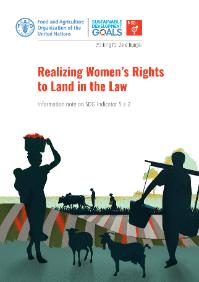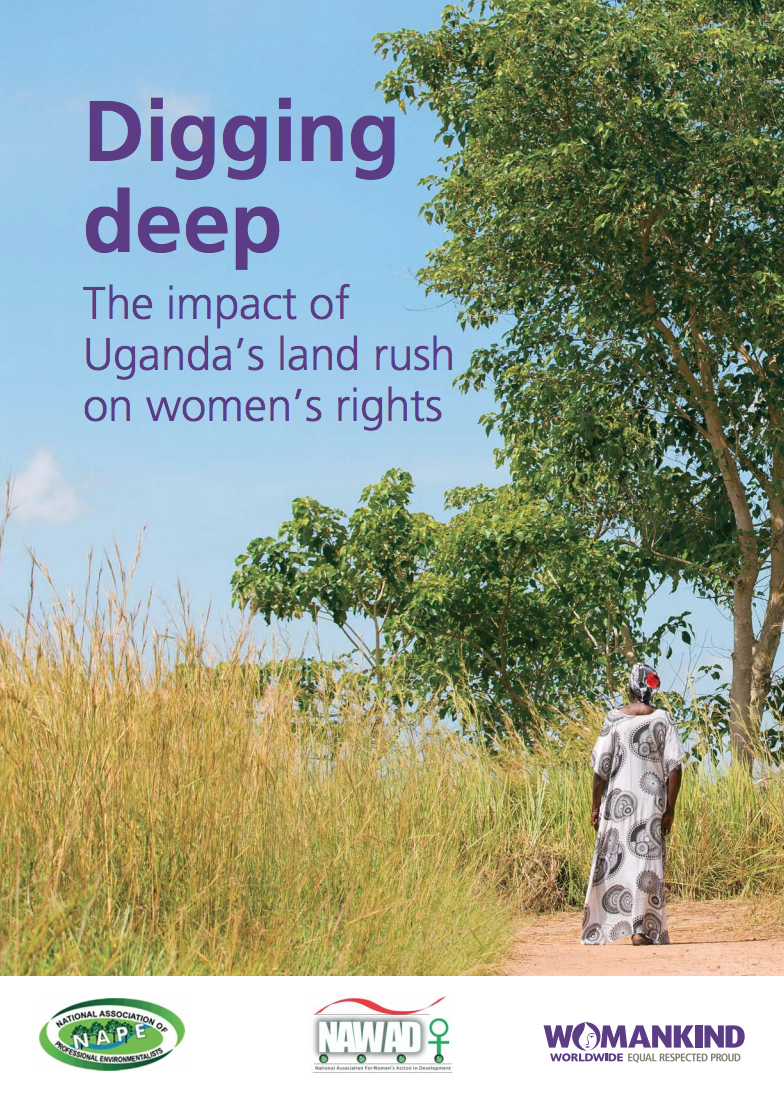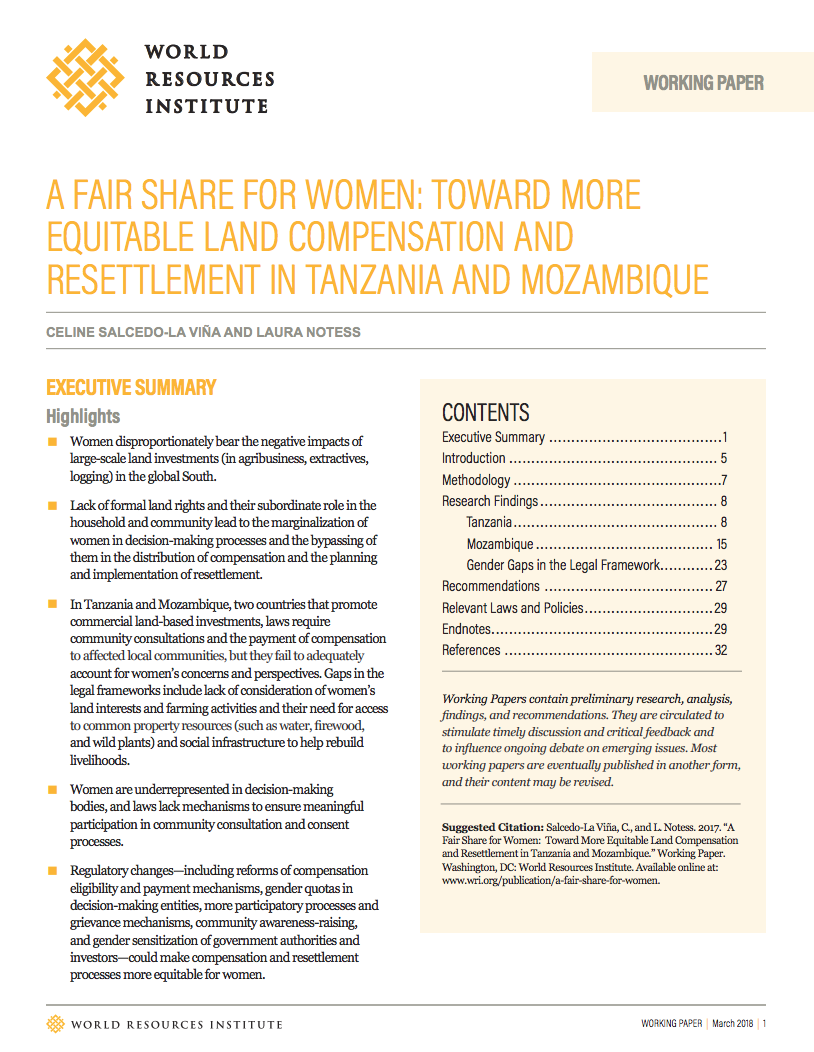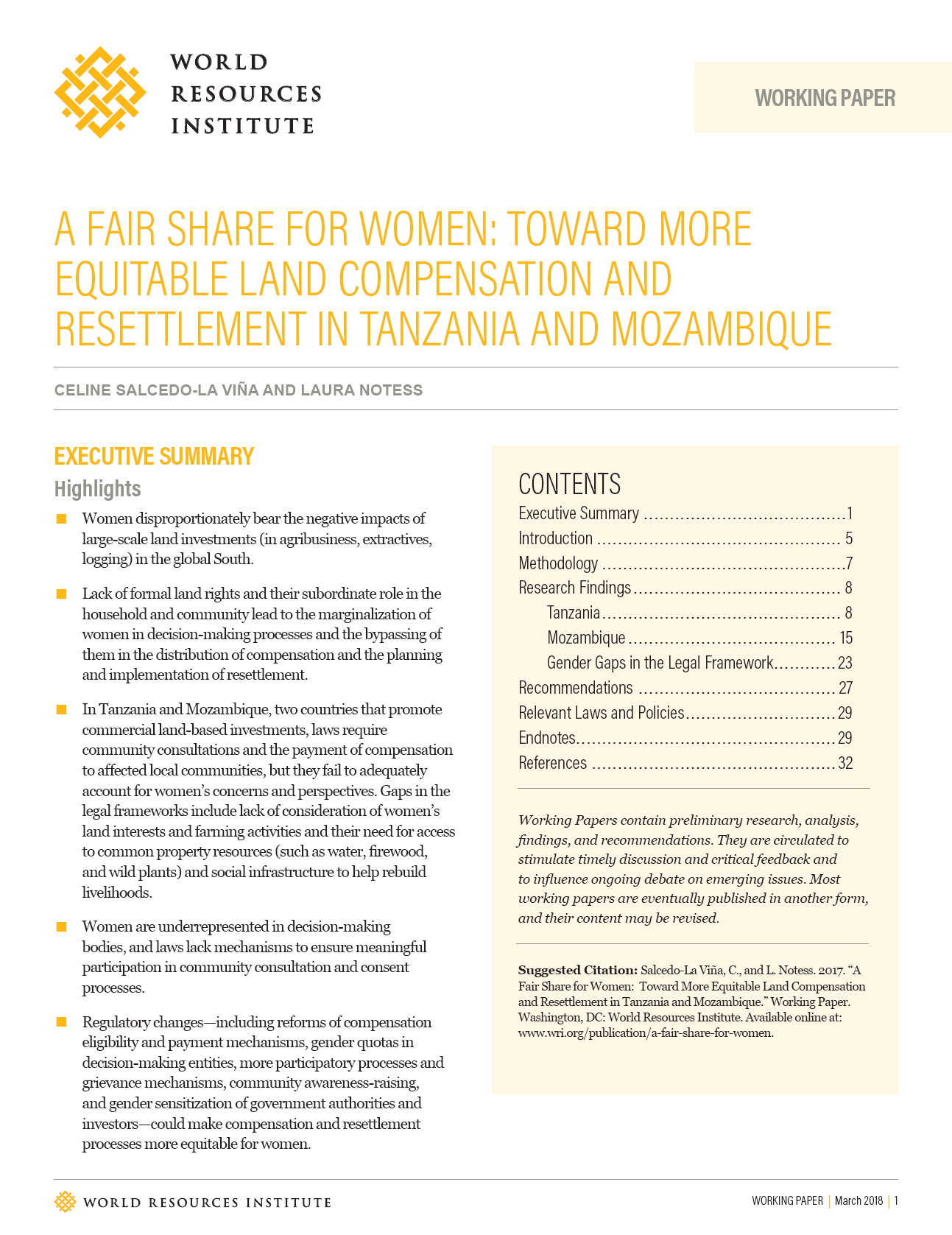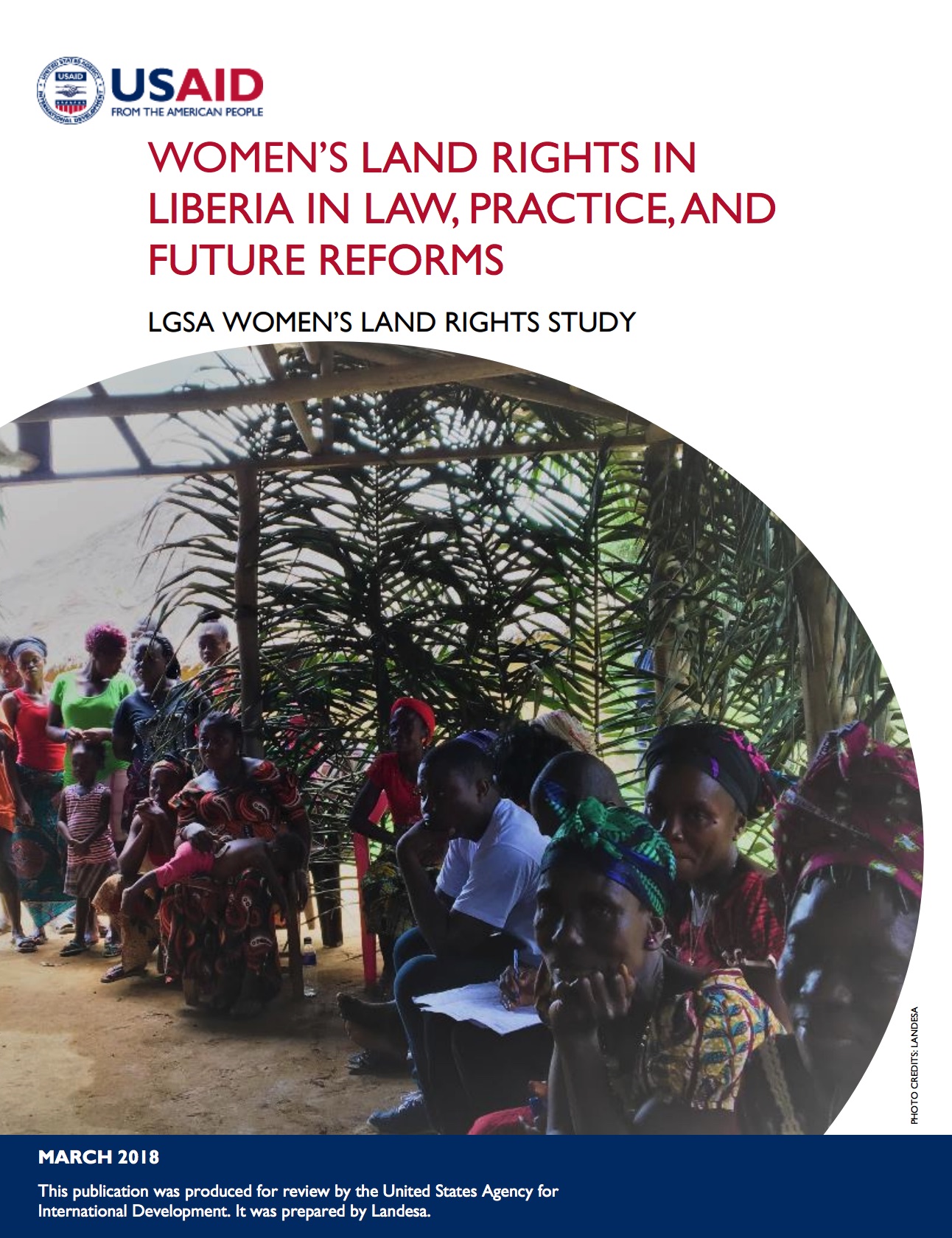Legislative Best Practices for Securing Women’s Rights to Community Lands
Brief highlights key attributes of national constitutions, laws, and regulations that play a fundamental role in protecting indigenous and rural women’s rights to community forests and other community lands. These legislative best practices were derived from a 2017 analysis of over 400 national laws and regulations, Power and Potential, which evaluates the extent to which women’s rights to community forests are recognized by national law in 30 low- and middle-income countries across Africa, Asia, and Latin America.


